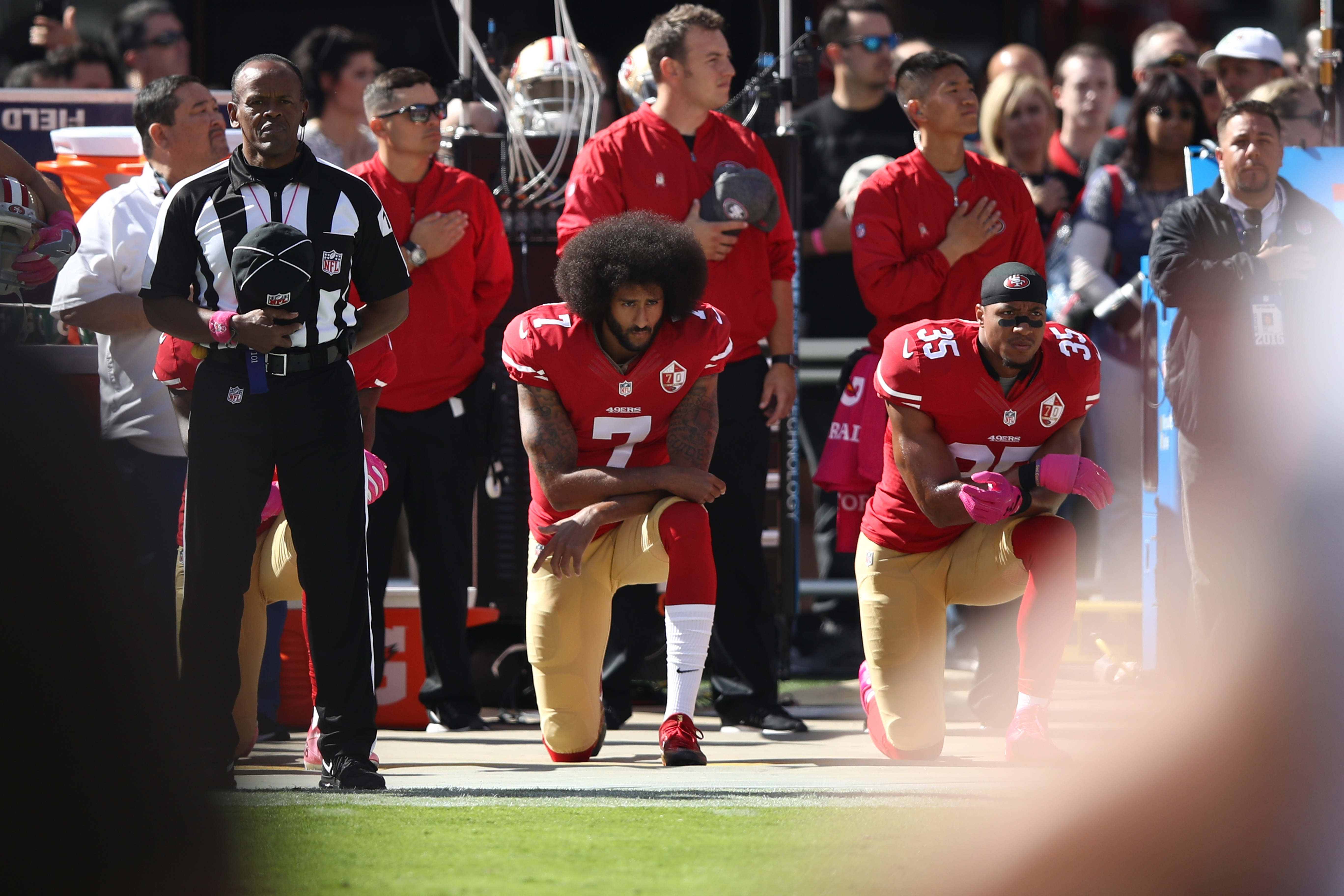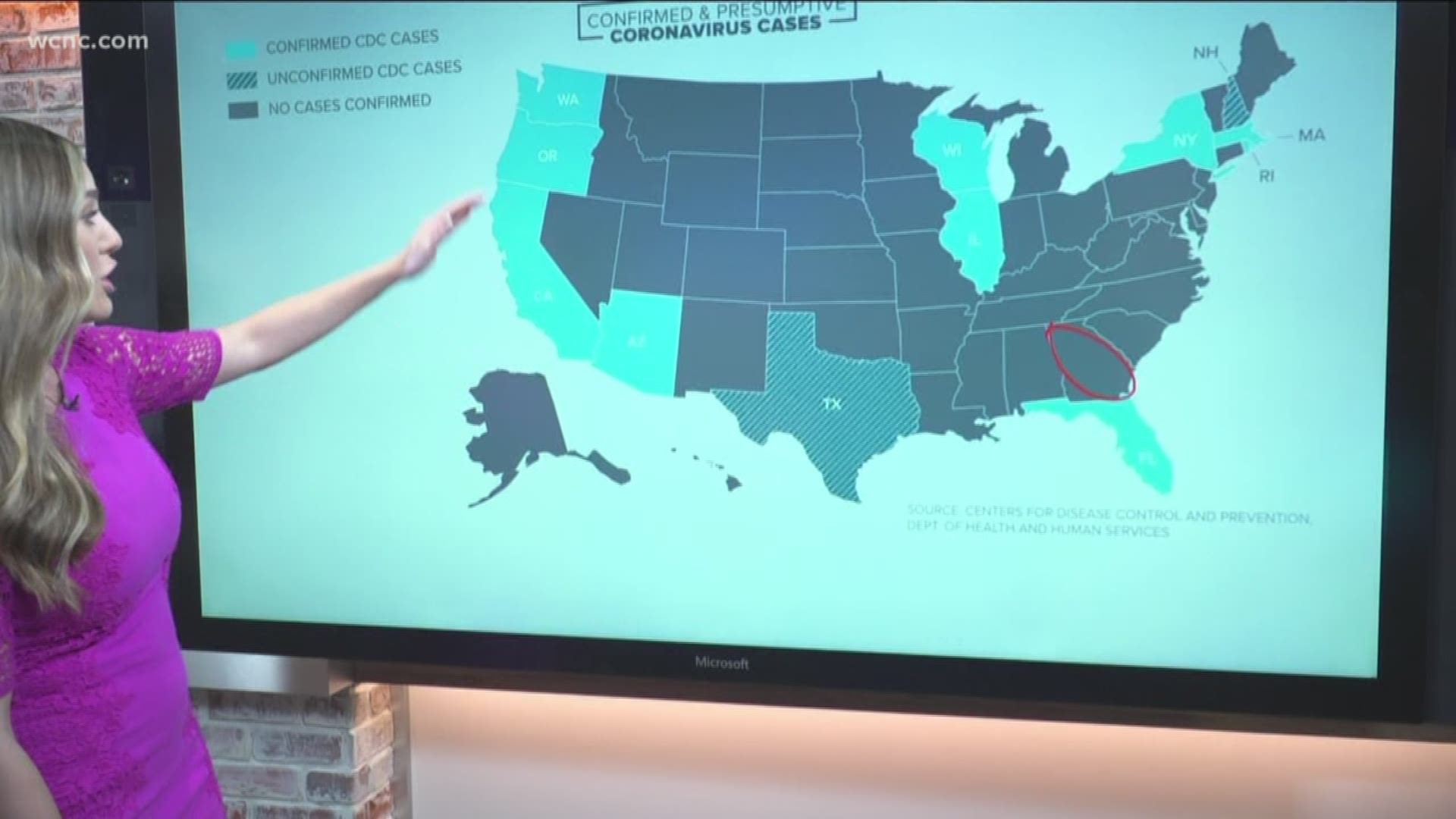Consider the quarterbacks who have signed with NFL teams since Colin Kaepernick became available in March.
Ryan Fitzpatrick. Mark Sanchez. Matt Schaub. Blaine Gabbert.
They're among the dozens of signees you might be familiar with. But none, unlike Kaepernick, has taken a team to the Super Bowl.
Names you may have never heard of: Brandon Allen, Austin Davis, Brad Kaaya. They are among unproven, resume-light prospects who landed jobs.
Kaepernick is still unemployed.
Must be the collusion. That’s the theory behind the grievance, filed by the former San Francisco 49ers quarterback — now armed with powerful attorney Mark Geragos — that alleges some (if not all) NFL teams are in cahoots to effectively ban the Father of NFL Protests from resuming his once-promising career.
It seems plausible. Kaepernick had such an impact and raised such a stink when he launched his national anthem protests last season, that the biggest item on the agenda when NFL owners meet in New York this week is to settle how such protests can be handled on the league stage while still supporting players who continue to express legitimate concerns about police brutality, social justice and inequality that moved Kaepernick to sit, then take a knee.
As one quarterback after another landed jobs, primarily as backups, and comments circulated about decisions to bypass Kaepernick, the message seemed apparent: He will not play in this league.
Count me among those who believe Kaepernick has been blackballed because he had the gall to ignite the league's social movement and strike such a nerve that Donald Trump has seen fit to crudely address protesting NFL players from his Presidential perch.
The message is obvious and not new: Stir up trouble, and you’re out.
That’s too bad, because so many teams in a quarterback-needy league could use the help.
Instead, we see Brian Hoyer, the journeyman the Niners signed to succeed Kaepernick, benched Sunday. We see Brock Osweiler, dumped by the Houston Texans and subsequently kicked to the curb by the Cleveland Browns, return to the Denver Broncos — who, like Cleveland, considered dealing for Kaepernick last year. Before the protests.
And we see the Tennessee Titans, in desperate need after Marcus Mariota's hamstring injury, sign Brandon Weeden.
There are 32 teams, and no one wants Kaepernick?
Must be collusion. Imagine how many clubs express behind closed doors what former Titans GM Floyd Reese recently said publicly, when addressing Kaepernick’s unemployment.
“You don’t want this circus,” Reese said on his Nashville radio show.
Kaepernick's grievance will go before arbitrator Stephen Burbank, who handles disputes within the collective bargaining agreement between the league and players union, and could result in a monetary award. Kaepernick has apparently mulled this option for weeks, with perhaps the final straw coming two weeks ago when Weeden was signed.
Kaepernick has barely spoken publicly since becoming a free agent. But he’s struck again with a major statement against the establishment — this time, the NFL establishment — that speaks volumes.
Now comes the tough legal standard to prove. What may look like collusion doesn’t make it collusion in the legal realm.
It’s not “collusion” if one or more teams determine Kaepernick doesn’t fit their system — even if their system is broken.
It’s not collusion if a team wants a cheaper player — who won’t provide a snowball’s chance of helping it win.
It’s not collusion if a team (or 32) wrongly concludes that they don’t think Kaepernick can play, or that they’d rather roll with quarterback they’re invested in.
It’s not collusion if everybody thinks what Reese said out loud.
If only Kaepernick can prove what your gut suggests.
“I think it’s an uphill climb,” Andrew Brandt, legal analyst for The MMQB, told USA TODAY Sports. “Where’s the smoking gun?”
Perhaps Kaepernick has some sort of evidence proving there were at least two teams conspiring to keep him out of the NFL. In a league with a network that rolls heavily on word of mouth and connections that often reunite coaches and assistants, it seems so plausible that Kaepernick’s name has at least come up in conversations.
Brandt, once a Green Bay Packers executive, pointed out how two other polarizing figures in recent years — Ray Rice and Tim Tebow — couldn’t find new NFL jobs, either. The “circus” argument got them, too, for different reasons.
If 32 teams agree on the “circus” theory, is that collusion?
Talent is supposed to be the ticket in the NFL. Kaepernick had a decent campaign in 2016 after he rehabbed from offseason surgeries. He still has a cannon arm, spry legs and plentiful game experience.
It’s just too weird to think that over the years, players with domestic assault issues, DUIs and even a dogfighting conviction, were granted fresh opportunities. But the man launching a second protest can’t catch a break.
Must be collusion. Now prove it.


